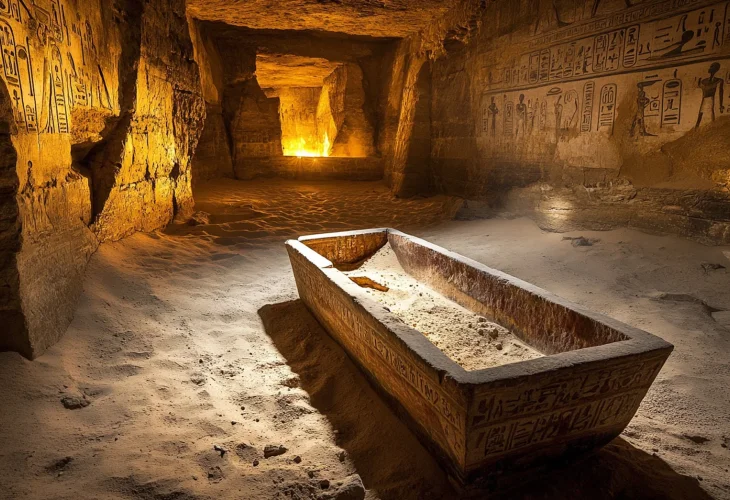Issues in the Bible
Why Did God Send the Israelites to Egypt? The Hidden Purpose of the Egyptian Exile
The slavery in Egypt forged Israel’s soul — teaching humility, faith, and the secret of dwelling in the Holy Land as strangers devoted to God

Interestingly, the Torah does not explicitly explain why the Israelites needed to descend into Egypt. Was there some terrible sin that condemned them to centuries of bondage and suffering?
In the Brit Bein HaBetarim (Covenant Between the Parts), God promises Abraham that his descendants will inherit the land of Canaan. Avraham asks: “How shall I know that I will inherit it?”
God then puts Avraham into a deep sleep and replies: “Know with certainty that your descendants will be strangers in a land not their own; they will be enslaved and oppressed for four hundred years.” (Bereishit 15:13)
The Talmud (Nedarim 32a) interprets this as a punishment: because Avraham questioned God’s promise, his descendants were enslaved in Egypt. However, this explanation seems difficult. Could a single question — uttered by a man of perfect faith, really justify the suffering of an entire nation for centuries?
Abraham’s Question Reconsidered
The Talmud in Taanit 27b offers a different understanding.
Avraham’s question was not born of doubt but of spiritual insight. He recognized the extraordinary holiness of the Land of Israel and wondered: “What merit will my descendants have that will allow them to remain worthy of it?”
God’s answer came in the form of the covenant ceremony itself: the sacrifices. Each animal Avraham offered symbolized a future korban that Israel would bring in the Temple. Through sacrificial service — through dedication and self-offering, the nation would retain its connection to the land.
The Role of Egyptian Slavery
This reading opens a deeper meaning to the exile in Egypt. The path to inheriting the Holy Land required not only offerings, but also spiritual preparation through servitude.
In Vayikra 20, the Torah describes the moral character of the land: “Keep all My statutes and judgments, so that the land to which I bring you will not vomit you out.”
If the Canaanites are being expelled, it is not because Israel “deserves” the land, but because the land itself cannot tolerate corruption. Only a nation living in holiness, justice, and divine service can remain there.
“You shall inherit their land… for I, the Lord your God, have separated you from the nations.” Israel’s distinction — its havdalah, separation, is what enables it to dwell in a land so spiritually sensitive.
How does a people become truly different from all others? How do they learn that the purpose of life is not wealth, power, or permanence, but service to God?
Egypt: A Nation Forged in Strangeness
The answer lies in the experience of exile and slavery. A nation that has known only prosperity will come to see itself as self-sufficient.
It will build armies and fortresses, chase luxury and art, and forget its Creator.
But a nation that has lived as a stranger and a slave, that has felt the crushing weight of earthly power, learns humility. It understands that life on earth is temporary, and that we are all sojourners.
After 210 years of exile, toil, and humiliation in Egypt, this truth became embedded deep in Israel’s collective soul. Even after two thousand years of later exile, Jews retained that same awareness: that we are temporary residents in this world, and our real home lies in serving God.
Archaeology also reflects this mindset. Excavations show that when the Israelites first entered Canaan, their art and architecture were simpler and humbler than those of the Canaanites. They were not striving for grand palaces or monumental art, but were building a holy society, investing their energy in worship and covenant rather than in wealth or vanity.
The Lesson of Egypt
The Egyptian exile therefore was not a punishment but a spiritual apprenticeship. It taught Israel to live in the Holy Land as sojourners, not as conquerors — to see the land not as an object of possession but as a sacred trust.
Only a people forged in exile could inherit a land of holiness.

